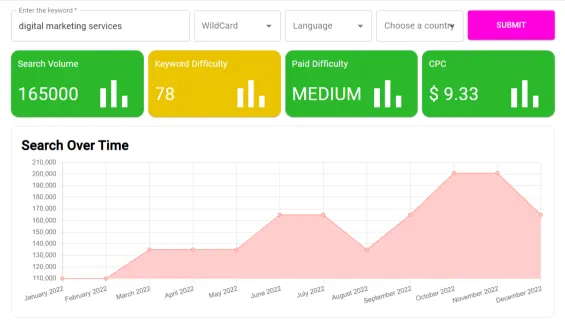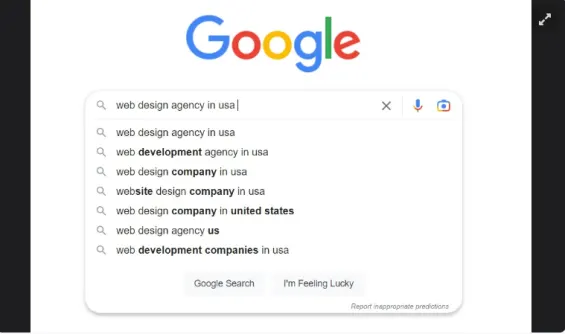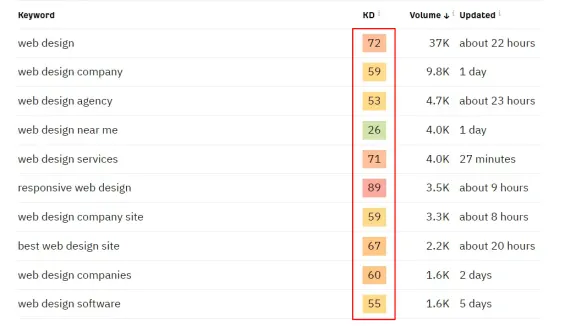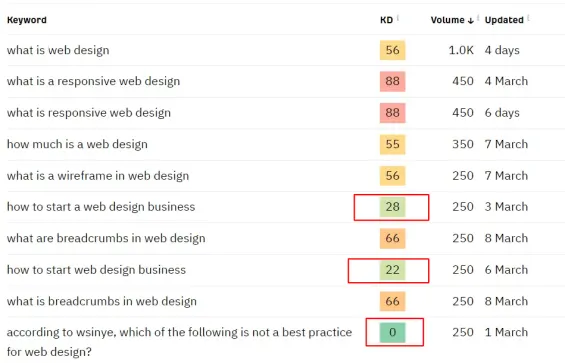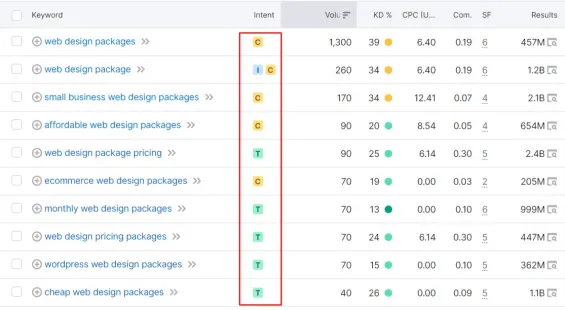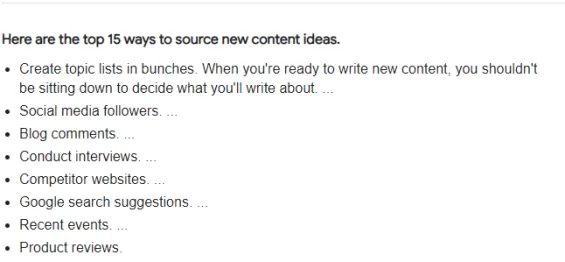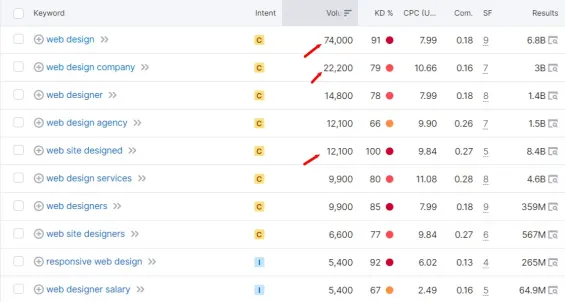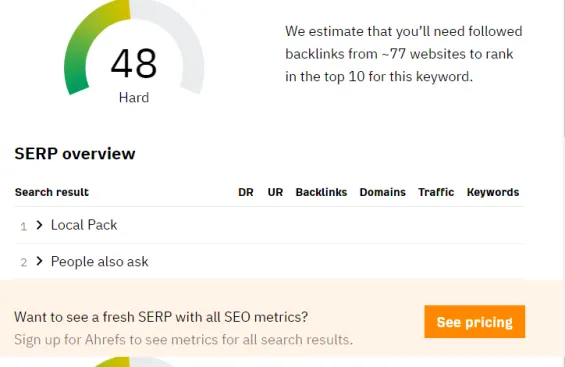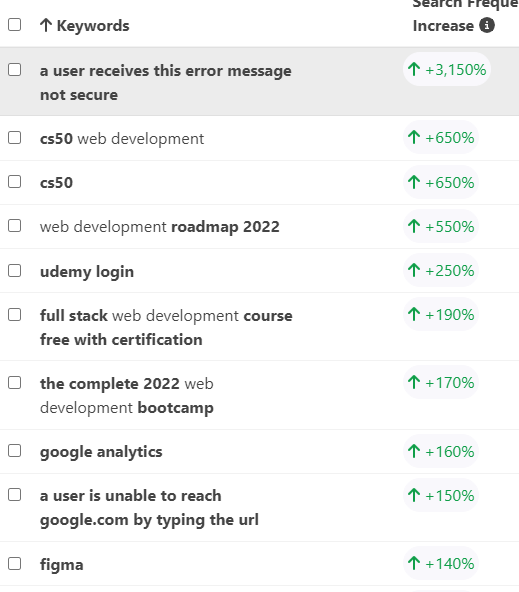The following topics will be discussed in this post.
- What is keyword research?
- 1. Find what people are searching for online
- 2. Understand the competitive landscape
- 3. Identify low-competition content opportunities
- 4. Understand search intent
- 5. Assists in generating new content ideas
- 6. Find keywords with high search volume
- 7. Assess the difficulty to rank
- 8. Understand trends
- What Are the Types of Keywords?
- How to Choose Keywords?
SEO, marketing, and webmasters are all creating content every day to stay ahead of the competition.
But what many of them don't realize is that creating content without proper keyword research is like blindly shooting arrows in the dark.
You might hit a few targets, but you're unlikely to hit the bullseye.
That's why keyword research is so important for SEO. .
Keyword research is an important step in SEO (Search Engine Optimization) as it helps to identify the terms and phrases that potential customers are using to search for products or services related to your business.
By understanding what keywords your target audience is using, you can optimize your website and content to rank higher in search engine results for those keywords, increasing the visibility of your website and driving more traffic to it.
Some important aspects of keyword research include identifying the right keywords to target, analyzing search volume and competition, and understanding how to use keywords in your website's content and meta tags. .
This post will tell you why you need to do keyword research before creating content.
What is keyword research?
Keyword research is an essential tool for any content creator.
It allows you to get the inside scoop on what people are searching for online, allowing you to create content with the perfect balance of popular keywords and topics that your target audience wants to see.
This information is vital for any content creator as it gives us instant feedback on what our audience is interested in and how you can use this information to create better content.
With this knowledge, you can create content that is more engaging and more likely to attract more visitors.
You can also use this data to tailor our content to our target audience, ensuring that our content speaks directly to the people who are looking for it.
With keyword research, content creators are able to create content that is more relevant and more likely to be seen by the right people..
If you're an SEO or a marketer, you know that keyword research is an essential part of every campaign and content creation.
But why? What makes keywords so important? The answer is simple: keywords are a window into the minds of your target audience.
They tell you what people are searching for and what they're interested in.
This knowledge can be used to create content that speaks directly to your target audience and helps you rank higher in search engine results.
Let's take a look at the importance:.
1. Find what people are searching for online
Keyword research is an essential tool for any content creator.
It allows you to get the inside scoop on what people are searching for online, allowing you to create content with the perfect balance of popular keywords and topics that your target audience wants to see.
This information is vital for any content creator as it gives us instant feedback on what our audience is interested in and how you can use this information to create better content.
With this knowledge, you can create content that is more engaging and more likely to attract more visitors.
You can also use this data to tailor our content to our target audience, ensuring that our content speaks directly to the people who are looking for it.
With keyword research, content creators are able to create content that is more relevant and more likely to be seen by the right people. .
2. Understand the competitive landscape
Keyword research is one of the most essential tools in the SEO toolkit.
Not only does it help you to understand the competitive landscape, but it also gives you a clear picture of who you’re competing against.
By doing proper keyword research, you’ll be able to see which domains are ranking for the keywords you’re targeting and which ones are being used by your competitors..
You can also identify new keywords that you may not have thought of before.
Once you’ve identified the keywords you’d like to target, you can use them to create SEO campaigns that are tailored to your audience and your business goals.
With the right keyword research, you’ll be able to create effective SEO campaigns that will help you to get the most out of your website and give you an edge over your competitors..
3. Identify low-competition content opportunities
When it comes to content creation, keyword research is key.
By conducting keyword research, you'll be able to dig up content opportunities with low competition.
By targeting keywords that have low competition, your content will stand out from the crowd and you'll increase the odds of it being found by search engines and potential customers..
Keyword research also allows you to uncover new topics to write about and identify trends in the market.
You can also use keyword research to optimize existing content, such as blog posts, to make sure they are up-to-date and relevant..
The best part is, you don't need to be an SEO expert to do keyword research.
There are plenty of free tools available to help you get started.
So if you want to make sure your content stands out from the competition, keyword research is the way to go. .
4. Understand search intent
Keyword research is one of the most important steps in creating content for your website.
But simply targeting the right keyword isn't enough - you also need to understand the search intent behind those keywords.
By understanding the search intent for a search query, you'll be able to create content that aligns with why people are using a keyword to find the information they're looking for..
For example, if your target keyword is "best shoes for running," you'll want to create content that focuses on what types of shoes are best for different types of running.
You'll also want to include product reviews and comparisons, so people can actually see which shoes are best for their needs..
Understanding search intent is just as important as choosing the right keyword in the first place.
With the right knowledge and research, you can create content that will not only help you rank better, but also provide real value to your readers. .
5. Assists in generating new content ideas
Doing keyword research is an important part of SEO, and it can help you come up with fresh content ideas for your blog.
Many tools can help you find new content ideas, and they work by taking your original keywords and expanding on them..
For example, if you start with the keyword "blogging," you can use a tool to find related terms like "blogging tips," "blogging strategies," and "blogging tools." This allows you to come up with new blog post ideas that are relevant to your topic and that your readers will be interested in.
Keyword research is also useful for identifying long-tail keywords, which are longer, more specific search terms.
These terms usually have low competition and high search volume, making them great for optimizing your blog posts.
If you're looking for new content ideas for your blog, keyword research is an invaluable tool.
It can help you come up with fun and interesting topics that your readers will love! .
6. Find keywords with high search volume
When trying to find keywords with high search volume, the process is both exciting and daunting.
After all, the more people that search for a term, the more likely it is that your site will be seen.
And if your site ranks well for search terms with a high search volume, it could open up new opportunities for your business.
Fortunately, there are keyword research tools you can use to help you find the most-searched keywords.
Google's Keyword Planner is a great place to start.
You can select keywords related to your industry and see how often they're searched..
You can also use other tools like Moz Keyword Explorer and SEMrush to get an even clearer picture of your target keywords.
Once you've found the keywords with the highest search volume, you can start integrating them into your site.
You can include them in your title tags, meta descriptions, and content..
Doing so will help your site rank higher in search engine results pages and bring in more visitors.
So don't underestimate the importance of finding the right keywords.
It's one of the most effective ways to boost your visibility and get the results you desire. .
7. Assess the difficulty to rank
Assessing the difficulty of ranking your website in search engines can be an exciting challenge.
With the right approach, you can easily see how your website can improve its visibility and position on the SERP (Search Engine Results Page).
To start, you'll want to look at the competition.
Do a search for your target keyword, and take a look at the websites that are ranking in the top spots.
Take a look at the content they have, and analyze the keywords they're using.
This will give you some insight into how difficult it will be to rank your website..
8. Understand trends
When it comes to understanding trends, it's important to know when people are searching for certain keywords.
This can help you determine when the best time is to publish a blog or update your website.
Doing this can help increase visibility and engagement, and in turn, can help you reach more people.
Google Trends is a great tool to help you understand the trends in keyword searches.
It shows you how often certain keywords have been searched for over the past month, year, or even further back.
You can also compare keyword searches and see how they stack up against each other.
Using this data, you can determine which keywords are most popular and when they should be used.
Knowing when people are searching for certain keywords can help you create content that will be most effective in reaching your audience.
It can also help you decide when the best time to publish your content..
What Are the Types of Keywords?
When it comes to keywords, there are three types: short, middle, and long tail keywords.
Short tail keywords are the shortest and most general.
Think of them as the "umbrella" keywords that cover a wide range of topics..
For example, a short-tail keyword could be "shoes".
Middle-tail keywords are a bit longer and more specific than short-tail keywords.
They are focused on a particular product or service, such as "men's running shoes"..
Long tail keywords are the longest and most specific.
These go into great detail about a specific product or service, like "men's running shoe size 10 black." Using all three types of keywords can really help to optimize your website for search engines.
Let’s get into the detail .
Short tail keywords
Short tail keywords range in length from one to two words.
While there is the most competition for these keywords, there is also the most search volume.
However, because these terms are not as focused, the conversion rate is the lowest..
It can be expensive and time-consuming to rank for short-tail keywords on page one of Google because they are difficult to rank for.
Middle tail keywords
Three to four words are the length of middle tail keywords.
The competition and search volume for these keywords are average.
Due to the fact that these keywords are more suited to the searcher, conversion rates are also modest..
Because there are so many underutilized terms in the industry, middle-tail keywords are a fantastic choice when conducting keyword research.
Long tail keywords
Five words or more are common for long-tail keywords.
The least popular but least competitive keywords are those with the lowest search volume.
However, because these terms are so intently targeted at the searcher, the conversion rate is the highest..
When conducting keyword research for a website or precisely focused sales, long tail keywords are the ideal choice.
How to Choose Keywords?
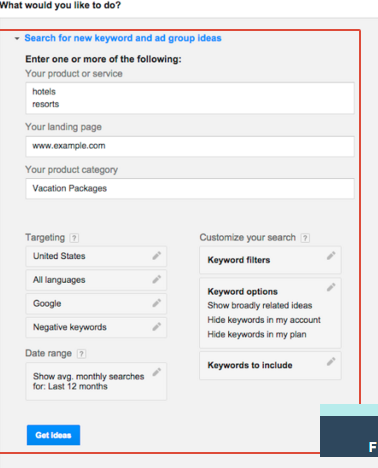
1. Think About Search Intent
Choosing the right keywords is essential for optimizing your website for search engines.
But how do you choose the right keywords? The first step is to think about the search intent behind your visitors.
To do this, you need to consider the buyer's journey.
Think about the questions potential customers might have, and use those as your keywords..
For example, if you're selling clothes, you can use keywords like "where to buy clothes," "best clothes for summer," or "affordable clothing stores." Once you've narrowed down your list of keywords, you can use tools like Google's Keyword Planner to find out the competition and search volumes for each keyword.
This will help you determine the best keywords for your website.
So don't underestimate the importance of keywords when it comes to SEO - they can make or break your success.
With the right keywords, you can get more traffic and customers to your website! .
2. Do Keyword Research
The second step how to choose keywords is to do some keyword research.
This is an exciting step because you get to dive into the data and really narrow down your target terms.
To do this research, you'll need a keyword research tool.
With such a tool, you'll be able to collect important data that will help you make the best decisions when it comes to your keyword selection..
This data will include things like search trends, average search volume, related keywords, and more.
By taking the time to collect and analyze this data, you'll be able to hone in on the best possible keywords for your website.
Furthermore, you'll be able to track your progress, so you can see how well your keywords are performing.
With the right keyword research tool, you'll be able to make the most out of your website and ensure that you reach the right audience. .
3. Analyze The Competition
When doing keyword research, it's important to pay close attention to the competition for your target keywords.
If the competition is too high, then you could be wasting your time by writing content for them.
To determine the competition level for a keyword, you need to look at the number of pages that are already ranking for it.
If there are thousands of pages, then the competition is too high and you should avoid it..
On the other hand, if there are only a few pages, then you should go ahead and use that keyword.
Additionally, if you notice that the competition consists of low-quality pages, then you may have a good chance of ranking with a well-written and optimized page.
Keyword research can be time-consuming and tedious, but if you pay attention to the competition, it can save you a lot of time and effort in the long run. .
4. Choose the Best Keywords
It's time to select the greatest keywords for you to concentrate on after you've completed your keyword research and examined the competition.
In order to choose the ideal keywords for which to generate new content, the first two steps of the keyword research process are crucial. Decide for yourself here.
5. Determine the Right Format for Your Keywords
If you're looking to increase your website's visibility on the search engine results page, determining the right format for your keywords is a must! This can easily be done by searching for a few of your keywords in Google and taking note of the type of content that’s ranking on the first page of the search.
Are they blog posts? Videos? Infographics? Knowing what format is performing best for your keywords can help you create more effective content that's more likely to rank..
Once you have your keyword format figured out, you can start optimizing your content for the search engine.
This could include including the keyword in the title, the headings, and meta tags.
These are all things that will help the search engine understand your content and rank it higher .
Conclusion:
Keywords can help you understand which topics your target audience is interested in, allowing you to tailor your content to their needs.
And finally, keywords can help you understand which topics are trending, so you can stay on top of the latest news and trends.
In short, keyword research is a must-have tool for any SEO or marketer.
Knowing which keywords your target audience is using can help you create content that resonates with them and climb the search engine rankings.
So don't neglect keyword research - it's the key to success!.
Read Next
The following articles are related to why keyword research is vital for seo success.


